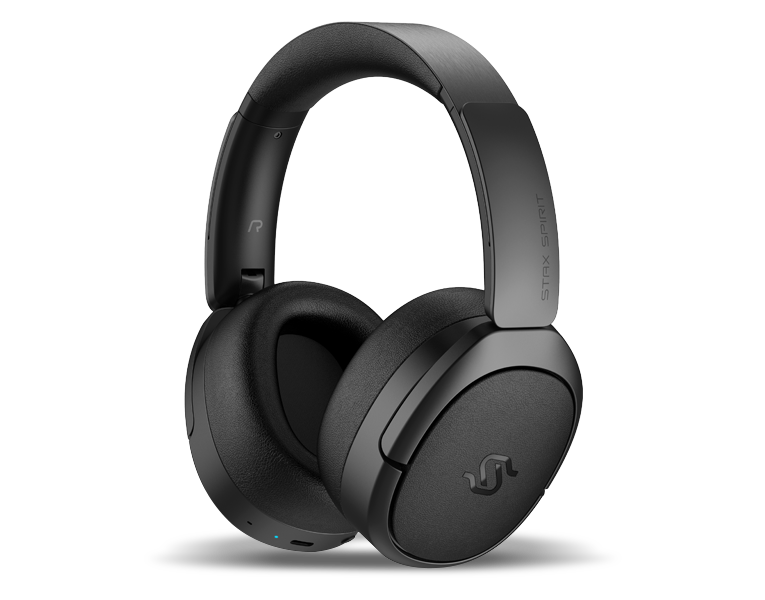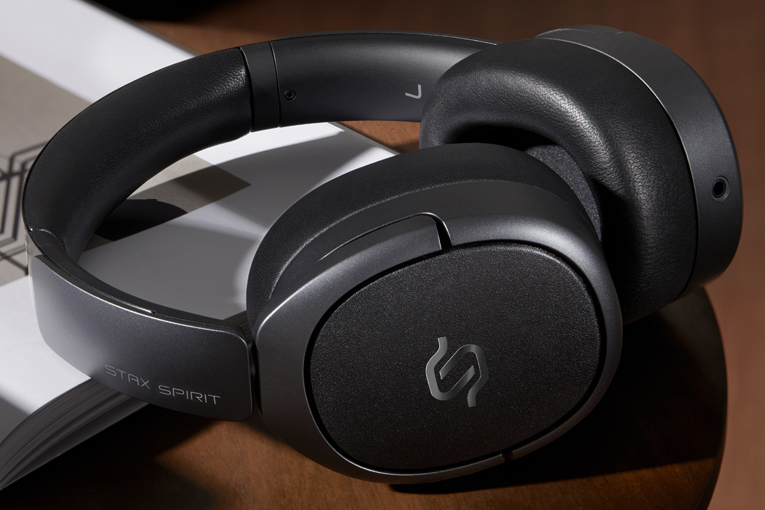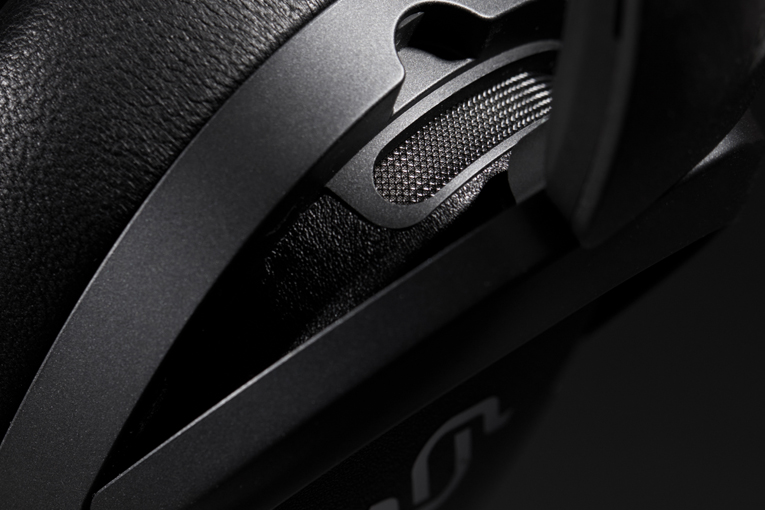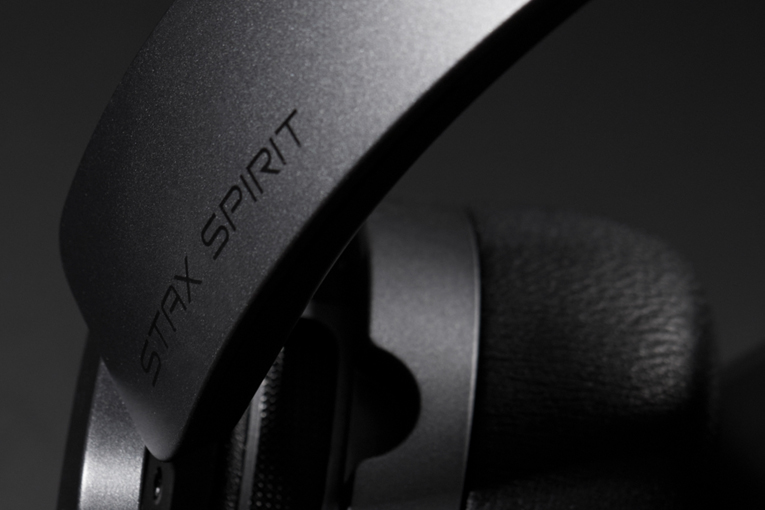Sound: 









Value: 









(Read about our ratings)
What we have here is an interesting oddity. There are lots of Bluetooth headphones on the market. There are also quite a few planar-magnetic headphones on the market. But there aren’t a lot of planar-magnetic Bluetooth headphones. Edifier’s Stax Spirit S5 headphones ($499, all prices in USD) are one of these rarefied concoctions, and as you can guess from the model number, they aren’t Edifier’s first try at this.

The Stax Spirit S5 headphones’ planar drivers feature 1μm wiring on a 2μm polyethylene substrate. Inside is a sizable battery providing a claimed 80 hours of playtime. They feature Bluetooth 5.4 and compatibility with a variety of codecs including aptX Lossless, HD, and Adaptive, as well as LDAC and AAC.
Among the Edifiers I’ve reviewed, I’ve found their earphones and headphones to be in the “good” to “really good” range. I adored the NeoBuds S earbuds, and while I didn’t love the WH950NB headphones as much, they were very good. I didn’t review the predecessors to the Spirit S5s, but I did hear them briefly and was rather . . . whelmed. They certainly weren’t bad, but they didn’t wow me. So I was very curious to hear how these new versions would sound.
In the box
There’s a fair amount in the box. I often complain when you get nothing with higher-end headphones. I get that the spin is “you get more headphone for the same money” when accessories aren’t included, but if I were spending hundreds of dollars on something, I’d want a bit more ceremony. So I’m glad to see that with the S5s you get a lovely hardshell case, a braided 3.5mm analog cable, a USB-A-to-USB-C cable, and a 3.5mm-to-6.35mm (1/4″) adapter. In stylish pouches are alternate “cooling mesh” earpads.

The pre-installed lambskin earpads are very soft. The same material is also found on the bottom of the headband. The outside surface of the earcups, although they don’t feel it, are “top-grain cowhide.” It all feels very high end, but there are a lot of high-end-feeling, non-animal options available to manufacturers. So I’m a bit disappointed how decidedly non-vegan the S5s are with no alternate versions available. Oh well.
Use
The S5s aren’t small. They stick out from your head more than they seem they might. Not a dealbreaker, but they’re not subtle. They collapse down relatively small, though, which is convenient. At 347gm, they’re not as light as, say, the Sony WH-1000XM5 headphones, but I wouldn’t call them heavy. On the bottom of the right earcup are four buttons. These control volume (single press) or track controls (long press). The button labeled with the Bluetooth logo enables pairing, but also toggles between EQ modes.

The Edifier ConneX app is far more elaborate than what comes from some big names like Apple. On the main page you can change the EQ modes, including a custom option with four adjustable bands. You can even save multiple custom EQs. If you swap out the earpads, there’s an option in the app that automatically adjusts the sound to compensate. A low-latency game mode is enabled here as well. Digging deeper, you can adjust specifics for various codecs, including sampling rates for LDAC and bit rate for LHDC. You can also change what the “multi-function button,” i.e., the one with the Bluetooth logo, does.
You can use the S5s wired with either an analog connection or via USB-C. One noticeable missing feature is noise canceling, which is something I think most people would expect in $500 Bluetooth headphones.
Sound
Overall, the Stax Spirit S5s have well-balanced mids and treble, with strong, though not particularly deep, bass.
“Jupiter” from Coldplay’s Moon Music (24-bit/48kHz FLAC, Parlophone Records / Qobuz) starts with a delicate acoustic guitar, which through the S5s had sharp attack and excellent detail without being overly bright. When the strings and drums came in later in the song, they sounded full and powerful. Chris Martin’s vocals were dead center. The soundstage was fine, but not particularly expansive. I wouldn’t say the S5s sounded closed-in, but they didn’t have the spaciousness of open-back planars—which is to be expected, since they’re not open-back.

The S5 headphones’ prowess with fast attacks and transients was well on display with “Sastanàqqàm” by West African blues band Tinariwen (Elwan, 24/44.1 FLAC, Anti-Epitaph / Qobuz). The complex rhythms of the varied percussion all had a snap and immediacy without being overly bright or biting. The electric guitar had a deep growl without being overbearing.
Fiona Apple’s Fetch the Bolt Cutters is one of my favorite albums from the last few years. “Shameika” (24/48 FLAC, Epic Records / Qobuz) is a complex blend of percussion, piano, and her vocals. Apple’s voice through the S5s never got lost in the mix. The piano had a smooth timbre while maintaining a richness in the lower notes. The cymbals sounded clean and clear, but weren’t harsh or too crystalline.
Comparison
To compare to the S5s, I picked two options that might not seem like obvious competitors. However, they are to me for reasons that reveal how highly I think of the S5s. The Sony WH-1000XM5s are near or at the top of any list of all-around great Bluetooth headphones. They’re my go-to picks for listening around the house. When first released, they were $400, so a bit cheaper than the S5s. Now they’re commonly around $300. They have great noise canceling but “just” 30mm dynamic drivers.
The XM5s have a lot of bass, and to see how their bass compared to that of the S5s, I put on “One of These Days” from Pink Floyd’s Meddle (24/192 FLAC, Capitol Records / Qobuz). Through the Sonys, this track had a ton of deep growl. Through the Edifiers, it was more balanced. The cymbals came through much more. The bass guitar was less muddy through the S5s, but there was also less deep bass compared to the Sonys. I like a lot of bass, and I didn’t find the S5s to be lacking in that regard, but the Sonys definitely had more. Unless you’re a bass lover like I am, this is probably fine.
Next up were the HiFiMan Sundara headphones. I adore these headphones, and they’re rarely beyond arm’s length when I’m at my desk working. They’re cheaper than the S5s and aren’t even Bluetooth. They are planar magnetic, though, and in this case an open-back build. I powered them using an iFi Audio Hip-dac2. I cued up “Hustle Rose” from Metric’s Old World Underground, Where Are You Now? (16/44.1 FLAC, Everloving Records / Qobuz). Through the Sundaras, the percussion on this track had a lot of snap, and it seemed to extend well out over my shoulders. Through the S5s, the sound was darker. The percussion still had snap, but less sparkle. There was more bass with the S5s, which was quite noticeable toward the end when the song really got going. So overall the S5s had far more heft to their sound. As you’d expect given their design, the Sundaras sounded more open. Both headphones sounded great, so really it was more down to preference. The Sundaras had more treble and sounded lighter as a result. The S5s had more bass and were likely more balanced, but weren’t quite as “big” sounding.
Conclusion
The S5s are some of my favorite Bluetooth headphones I’ve reviewed recently. I’m a big fan of planar-magnetic drivers. That’s not to say all planar headphones sound great, but many of my favorite headphones feature those drivers. They offer a sense of realism that’s hard (but not impossible) to achieve with dynamic drivers.

My main issues are price, weight, and size. At $500 the S5s are pretty expensive for Bluetooth headphones. Not egregiously so, but their size and lack of noise canceling means they aren’t as versatile as the Sony XM5s, which are also cheaper. After having the S5s around for a month, I still tended to grab the XM5s for their convenience, or the Sundaras for something to listen to while working.
That said, I can easily imagine plenty of people for whom the price isn’t a big deal, and who don’t care about the convenience of the XM5s. When it comes down to it, the S5 headphones sound fantastic—and that accounts for a lot.
. . . Geoffrey Morrison
Associated Equipment
- Smartphone: Google Pixel 9 Pro
- Headphones: Sony WH-1000MX5, HiFiMan Sundara
- DAC/Amplifier: iFi Audio Hip-dac2
- Laptop: Microsoft Surface Pro 8
Edifier Stax Spirit S5 headphones
Price: $499.99
Warranty: One year, parts and labor
Edifier USA
428 Hemphill St.
Fort Worth, TX 76104
Phone: 1-877-334-3437
Website: www.edifier.com




